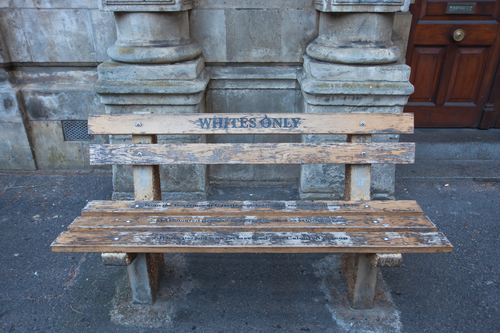
Someone named Shaun King has claimed that Elon Musk was raised in Apartheid by a white nationalist. The claim is at best questionable since we don’t know what Elon Musk’s father believed.
In response, Reason writer Liz Wolfe writes:
This is false on multiple counts. Musk was born in Pretoria, South Africa, in 1971. His parents divorced when he was a child, and Musk lived with his father Errol, an engineer who amassed a large fortune, for several years. Musk moved to Canada in 1988 when he was 17. He and his father became estranged later on, though Musk said in 2019 that Errol contributed “10% of a ~$200k angel funding round” to Zip2, one of Musk’s early business ventures.*
The oft–repeated claim that Elon Musk is a racist or an Apartheid supporter likely originatesfrom the [sic] Errol‘s claim that he owned a Zambian emerald mine in the 1980s. Many people have since used Errol’s claim to argue that the family must have profited from Apartheid, with some detractors alleging that this fortune was then funneled to Elon and used by him at the start of his career.
So it’s not Apartheid in South Africa: it’s a completely different country.
Wolfe continues:
But this story doesn’t hold up. Errol, who has been embroiled in salacious scandals and whose own family members say is unreliable, claims he owned a stake in an emerald mine in Zambia in the ’80s, after the Musk parents divorced. The mine was in Zambia, not South Africa, and we have no evidence that whatever profits the mine produced actually was given to Elon in the late ’90s as angel funding. Nor do we have any evidence that Musk was fond of South Africa’s terrible segregationist policies, which all white South Africans benefited from, regardless of whether they supported them.
Good reasoning, except for the last line. It ignores the economics of Apartheid. Not just black people, but also many white people, lost from Apartheid. The main white people who lost were employers, who were forcibly kept from hiring black people.
One of the best entries in my Concise Encyclopedia of Economics is “Apartheid” by Thomas W. Hazlett. The relevant section for the issue at hand is Hazlett’s discussion of the “Colour Bar,” which was a milder version of Apartheid:
The South African gold rush made the natural synergy between white-owned capital and abundant black labor overpowering. The gains from cooperation between eager British investors and thousands of African workers were sufficient to bridge gaping differences in language, customs, and geography. At first, however, the white capitalist could deal directly only with the few English and Afrikaner managers and foremen who shared his tongue and work habits. But the premium such workers commanded soon became an extravagance. Black workers were becoming capable of performing industrial leadership roles in far greater numbers and at far less cost. Driven by the profit motive, the substitution of black for white in skilled and semiskilled mining jobs rose high on the agenda of the mining companies.
White workers feared the large supply of African labor as the low-priced competition that it was. Hence, white tradesmen and government officials, including police, regularly harassed African workers to discourage them from traveling to the mines and competing for permanent positions. Beginning in the 1890s, the Chamber of Mines, a group of employers, complained regularly of this systematic discrimination and attempted to secure better treatment for black workers. Their gesture was neither altruistic nor founded on liberal beliefs. Indeed, the mine owners often resorted to racist measures themselves. But here they had a clear economic incentive: labor costs were minimized where rules were color-blind. This self-interest was so powerful that it led the chamber to finance the first lawsuits and political campaigns against segregationist legislation.
In short, white workers gained because they didn’t have to compete with black workers. But white employers lost.
But notice that the Colour Bar and, later, Apartheid, made South African mining more expensive.
So if mining in South Africa is more expensive, guess what? Mine owners in nearby countries would gain from not having as low-cost a competitor as otherwise. So Elon Musk’s father, who owned a mine in Zambia, might have gained from Apartheid. On the other hand, if he had owned a mine in South Africa, he would definitely have lost.

READER COMMENTS
Knut P. Heen
Apr 29 2022 at 9:25am
Completely agree. I also recommend Hutt’s Economics of the Colour Bar.
Mark Z
Apr 29 2022 at 9:43pm
I’d add, it’s not even his fault where he was born in any event. King casting aspersions on someone for his nation of origin strikes me as bigotry itself. ‘Yeah, what a jerk Musk was, he should’ve chosen to be born in a better place and time.’
Comments are closed.